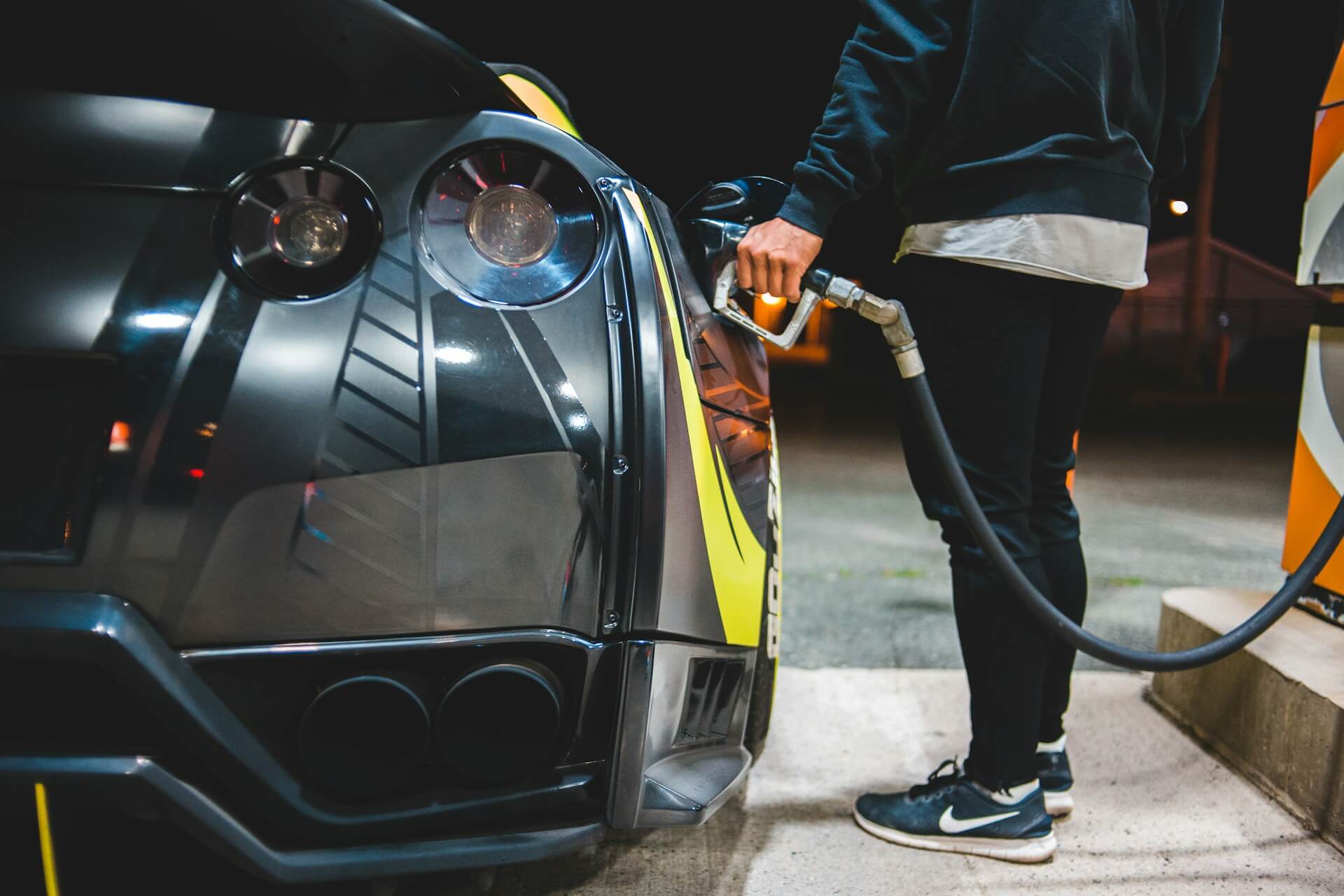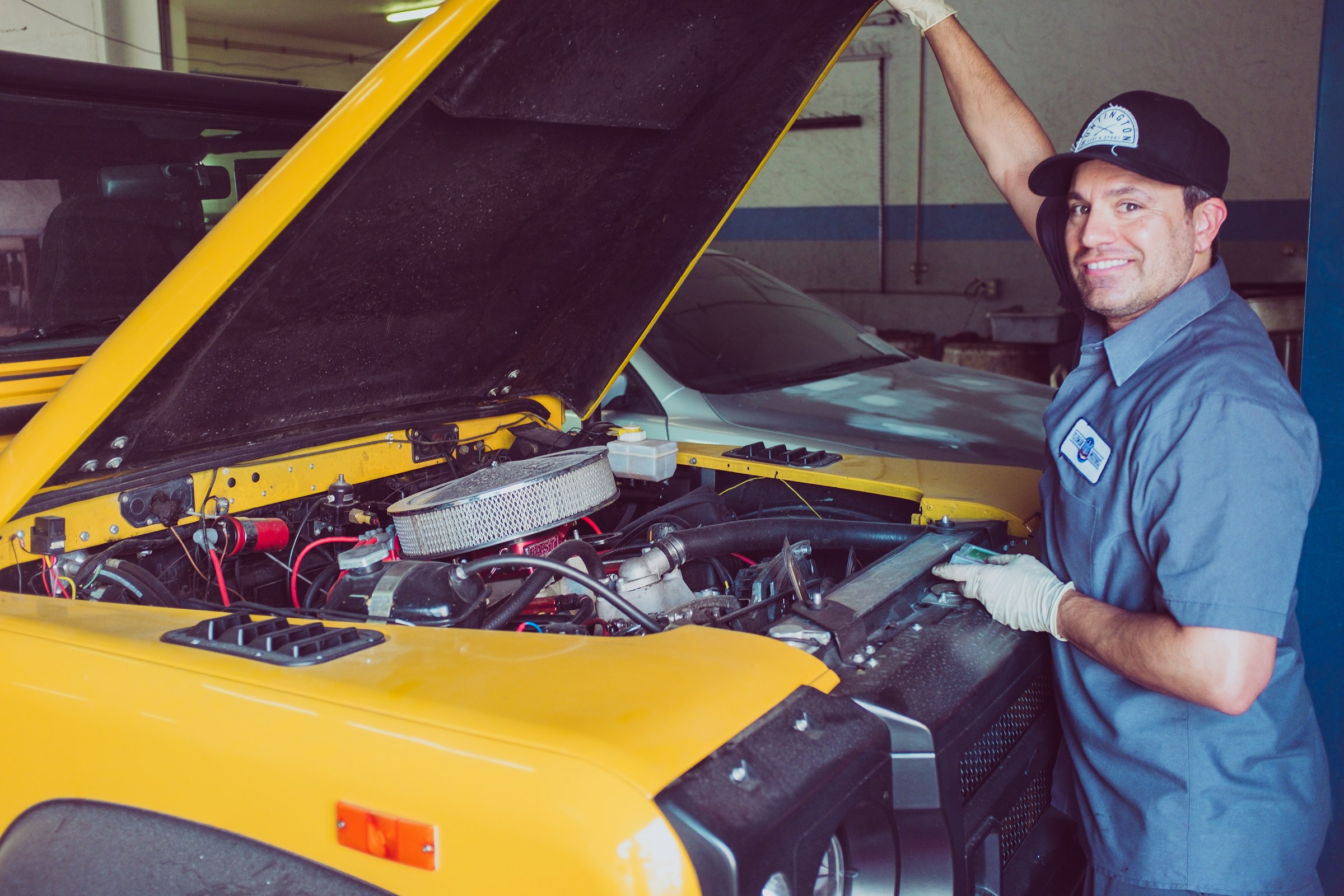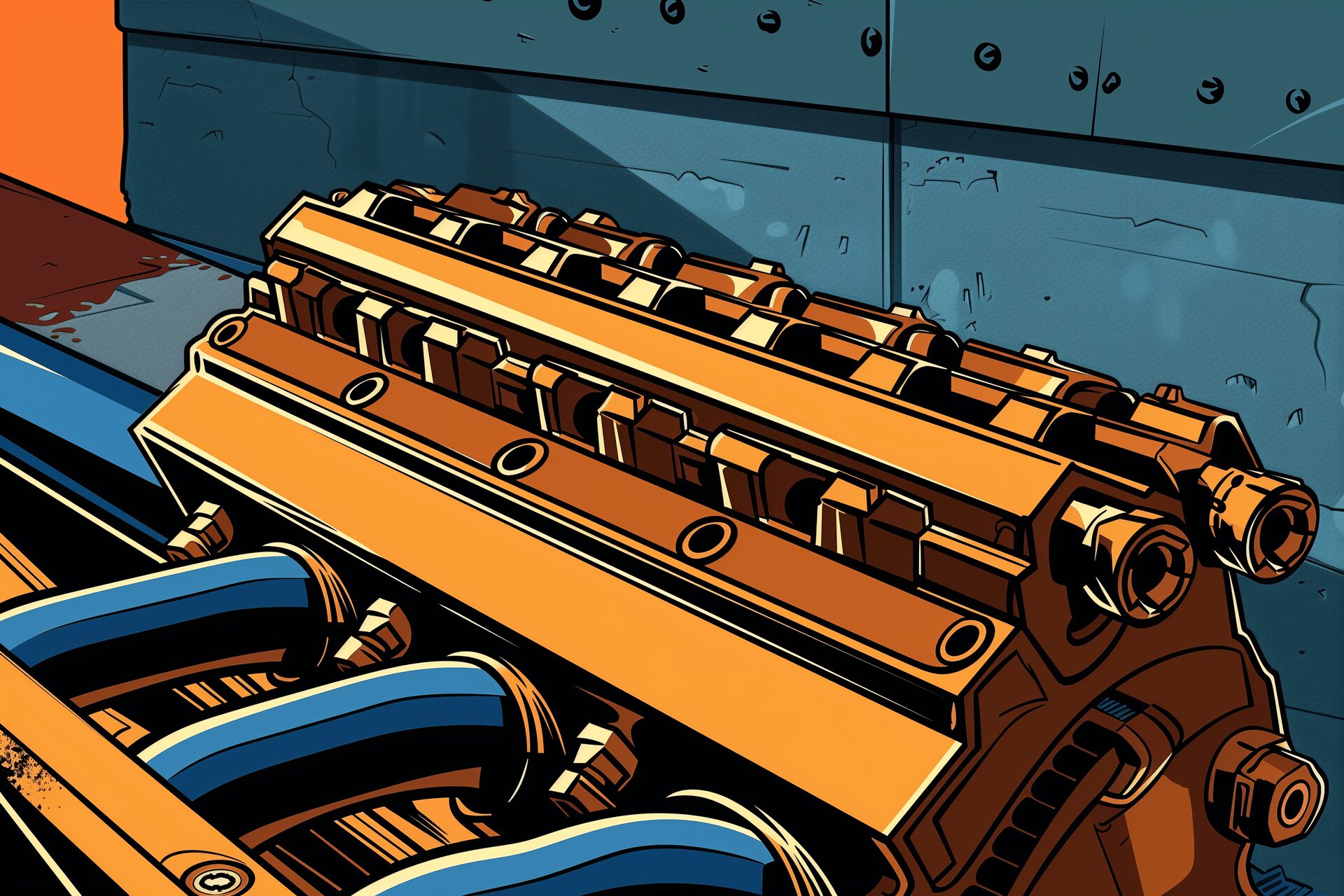
As an Amazon Associate, Modded gets commissions for purchases made through links in this post.
If you realize you put diesel in your gas tank, your first step is to stop and call a repair shop. Mixing diesel and gasoline can cause problems with the engine and fuel system of your car. Below you’ll learn more about the symptoms of diesel in a gas engine and the best course of action.
Symptoms of Diesel in a Gas Engine

The symptoms you see depend on the amount of fuel and how long you drove with the diesel. You will only start seeing these effects once the correct fuel has run out of the tank and your engine has started processing the diesel. When the two fuels mix— they cannot fully combine so you will have globules of diesel floating around. This can cause cause several issues:
- Error code on the dashboard: You may see error codes and the engine light will switch on.
- Knocking or Pinging in the engine: When the fuel ignites too quickly, it’s a sign of the wrong fuel in your tank.
- Engine misfires: You may notice your engine sputtering or jolting. In severe cases, it may stall completely. The spark plugs will fail to ignite the fuel properly since diesel has a heavier viscosity and density.
- Rough idling: Your engine may vibrate and shake. When an engine struggles to run smoothly, it’s a sign that there is diesel in the gas tank.
- Difficulty starting: While this could be a sign of something else, a refuel mistake coil make it difficult to start the engine. The engine may turn over slowly or struggle to start at all.
- Reduced power and performance: When you press the accelerator pedal, your car may feel sluggish or slow to respond. Diesel fuel does not burn as efficiently as gasoline, so you may notice reduced power and performance. Especially if your car’s engine is running on a mixture of gasoline and diesel fuel.
- Fuel System Problems: Diesel fuel can clog fuel injectors and fuel lines, leading to poor fuel delivery and engine performance issues. It can also corrode fuel system components which leads to leaks and potential safety hazards.
- Engine Failure: In extreme cases, running a gasoline engine on diesel fuel can cause catastrophic failure, requiring costly repairs or even engine replacement.
While engine problems and difficulty starting or reduced power and performance may be symptoms of diesel in a gas engine, other factors can also cause these same symptoms. So it’s essential to have your car checked by a professional mechanic if you suspect it has been contaminated with diesel fuel.
What To Do When You Realize There’s Diesel in Your Gas Engine

Do not start (or restart in cases where you notice symptoms) the car and call your dealership or a repair shop immediately. They will tow your car to a garage and drain the tank. Then, rinse with fresh gasoline repeatedly to wash out all the diesel.
They may also flush the fuel lines in your car and replace the fuel filter. In some cases they change the spark plugs depending on the extent of the damage. This will cost from $200 to $500 and depends on how much diesel is in your tank at the time. Repairs from extensive damage can cost up to $2000.
You must stop driving your car as soon as you realize the mistake. The longer you drive, the more damage to your ride. You may also encounter bigger problems later on like catalytic converter failure, sticking valves or reduced engine lifespan.
If you caught yourself just before filling your gas tank with diesel, it has to be less than 5% for minimal damage. That’s about 3 gallons in an 80-gallon tank.
How To Avoid a Diesel in Gas Engine Situation Altogether
The easiest way to tell: The Diesel pump has a green handle and the gasoline pump has a black one.

Usually, the pumps are clearly labeled, making it easy to see. However, it’s important to be mindful when refueling your car. It’s a good idea to always check twice. Diesel nozzles are also larger in diameter. So if you notice that it fits oddly into your gas tank opening, check it’s the right one . Diesel has a oily kerosene scent and is darker than gas. Gas has a scent similar to paint thinners with a yellowish color to it.
If you live in New Jersey where it’s illegal for you to pump your own gas, just make sure the service attendant hears you clearly and pumps the correct gas for your engine. Last year Oregon lifted a 72-year ban on self-service, so learning how to pump your own gas is a vital skill. For new drivers, it may take some time to get accustomed to the process, so checking twice will help prevent mishap.
Why Diesel and Gasoline Should Never Mix
You should not mix diesel and gasoline as they are different types of fuels with distinct properties. Diesel fuel is a heavier, oil-based fuel designed for use in compression ignition engines. Gasoline is a lighter, spark-ignited fuel used in gasoline engines.
Diesel fuel flows through fuel systems at a higher pressure than gasoline. If you introduce gasoline into a diesel fuel system, it may not be able to handle the increased pressure. This can cause damage to fuel lines, pumps, and injectors. Diesel fuel also has a higher energy density than gasoline, so it can contaminate engine oil more easily.
If gasoline gets into the crankcase of a diesel engine, it can dilute the lubricating properties of the engine oil. Which can lead to premature wear on moving parts. Gasoline can damage the catalytic converter in a diesel engine, which can lead to reduced fuel efficiency and increased emissions.
Prevent a Dieselene Accident
Although your car can recover if you accidentally put diesel in a gas tank and you will for sure remember next time, prevention is best. Take preventative measures when you refill your tank. Before you start pumping, ensure you’re filling with the right fuel for your engine.
Stay up to date with the latest by subscribing to Modded Minute.
Author
Jack Shaw is a senior writer at Modded. Jack is an avid enthusiast for keeping up with personal health and enjoying nature. He has over five years of experience writing in the men's lifestyle niche, and has written extensively on topics of fitness, exploring the outdoors and men's interests. His writings have been featured in SportsEd TV, Love Inc., and Offroad Xtreme among many more publications.






